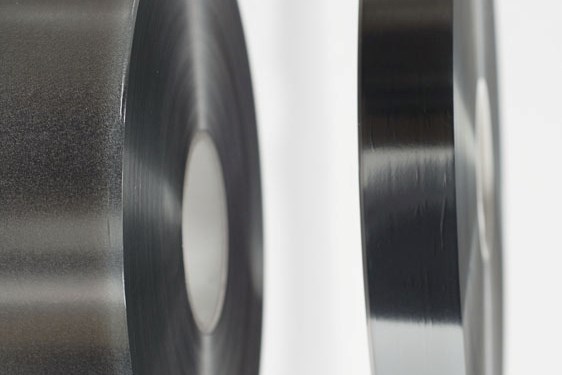Novel Class of Engineering Thermoplastic for High-Heat Capacitor Films
Borealis’s Stelora is thermal performance gap between PP capacitor films and films based on high-temperature PPS, PTFE and PEEK.

A novel class of “sustainably based”engineering thermoplastic for a wide range of technically advanced applications for which high-temperature polymers are currently used has been launched by . The new Stelora resin is the result of a collaboration with cyclic olefin copolymer (COC) resin producer TOPAS Advanced Polymers, and was created using a unique process that combines clear, high-purity COC with PP made with Borealis’ Bornewables feedstock which is derived from waste and residue streams such as used cooking oils and is based on a mass balance approach.
The resulting material, called ethylene-propylene-norbornene (EPN), is based on 80% renewable feedstock and is intended for “superclean” high-heat-resistant biaxially oriented dielectric capacitor film applications required for the new generation of energy-saving power semiconductors. These power semiconductors based on silicon carbide (SiC) or gallium nitride (GaN) will be used primarily in inverters for e-mobility and renewable energy generation.
Sources at Borealis say films made of the material bridge the thermal performance gap between capacitor films made of PP and those made from high-temperature PPS, PTFE and PEEK, while maintaining the other benefits of well-established high-performing PP capacitor films. The advantages of Stelora capacitor films over PP capacitors films is that it provides exceptional heat resistance and superior electrical properties at high temperatures.
The first commercially available application of Stelora is a dielectric capacitor film which boasts all of the benefits of the equivalent made using PP resin as a dielectric, but with significant performance enhancements including exceptional heat resistance, superior electrical properties at high temperatures, and increased efficiency. Stelora-based film is also fully compatible with existing converting lines, so it can be processed by customers without the need for investment in new equipment, infrastructure or assets.
Said Ilkka Pentillä, CEO of Tervakoski Films Group, a long-standing Borealis customer of capacitor grades, “Stelora is a unique solution that combines enhanced sustainability with elevated performance. We are confident that, within a short time, it will replace existing engineering polymers in a wide range of applications, providing our customers with a cost-effective, high-performance solution that also drives circularity and energy efficiency.”
Related Content
-
Polymer Showdown — PC/ABS vs. PC/PBT — May the Best Material Win
First in a series, experts from plastics engineering consultancy The Madison Group will pit leading thermoplastics against each other to see how they differ in processing characteristics, chemical resistance, thermal and mechanical performance, and more.
-
Scaling Up Sustainable Solutions for Fiber Reinforced Composite Materials
Oak Ridge National Laboratory's Sustainable Manufacturing Technologies Group helps industrial partners tackle the sustainability challenges presented by fiber-reinforced composite materials.
-
Prices Up for All Volume Resins
First quarter was ending up with upward pricing, primarily due to higher feedstock costs and not supply/demand fundamentals.





